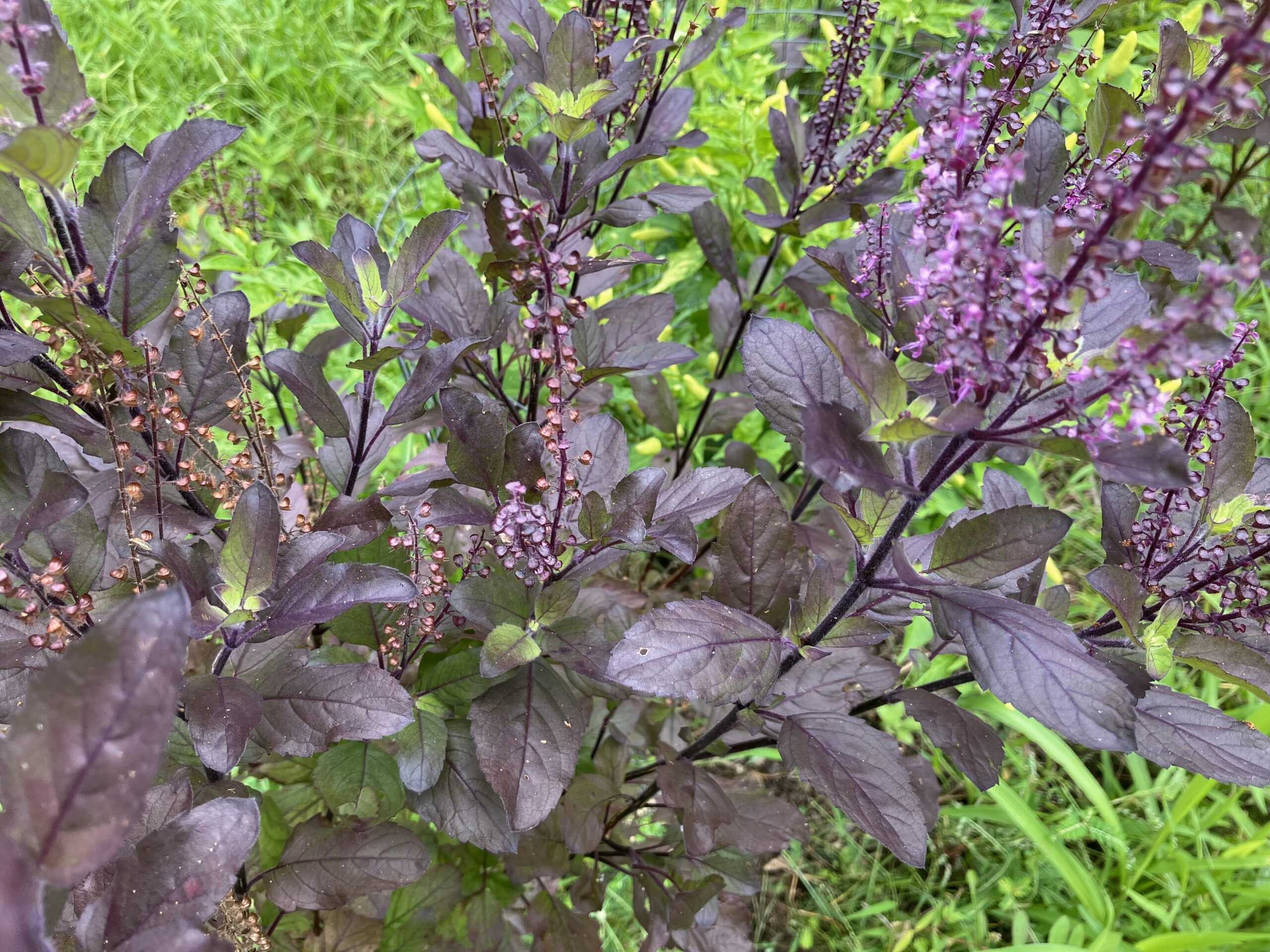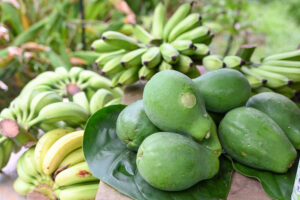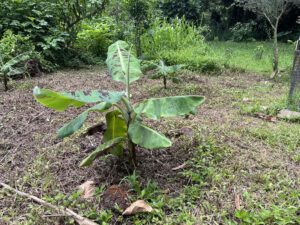Step into our natural garden, a sensory delight beyond the usual fruits and vegetables. Here, a wide variety of herbs await, their vibrant leaves a feast for the eyes, their oils and extracts a tantalizing aroma, and their flavorful dishes a treat for the taste buds. It’s a truly immersive experience that you won’t want to miss.
Herbs are the versatile gems of any garden. Some, with their aromatic leaves and berries, not only enhance the flavor of our meals but also contribute to our physical and mental well-being. Others, with their medicinal properties, can be transformed into powders, infusions, or ointments, offering a holistic approach to wellness. And then some do it all, adding fragrance and health to our lives.
At our farm, we are dedicated to the belief that ‘Healthy food is medicine.’ We carefully select herbs that we have personally experienced the benefits of and plant seeds and seedlings. We also surround pavilions where people gather for events and volunteers’ lunchtime with fragrant herbs, not only so that they can enjoy the aromas carried by the wind but also to repel mosquitoes and other insects. Our commitment to healthy food and holistic wellness is at the heart of everything we do.
Today, we are excited to introduce you to Tulsi in Hindi, also known as Holy Basil in English. This herb, revered as the ‘Queen of Herbs’ in India for thousands of years, has a rich history and medicinal benefits.
* * * * *
Tulsi is one of the 60 species plants of genus Basil (Ocimum), and in Vedic texts of Ayurveda, the “science of life,” four species of Tulsi are mentioned. Most are native to India but are now found in warm tropical and subtropical regions from the Middle East to the Pacific Ocean, where they are cultivated as annual plants. It has lovely flowers with many small vertical berries resembling basil berries at the end of increasingly branched stems that are characteristic of the Lamiaceae family, and its leaves are simple oval shapes that can be green or purple.
The purple-leafed Tulsi on our farm is named “Krishna Tulsi.” Over five years ago, my Iyengar yoga teacher gave me a small stem. Then, my husband, Gary, grew it in another garden and transplanted it to this farm.
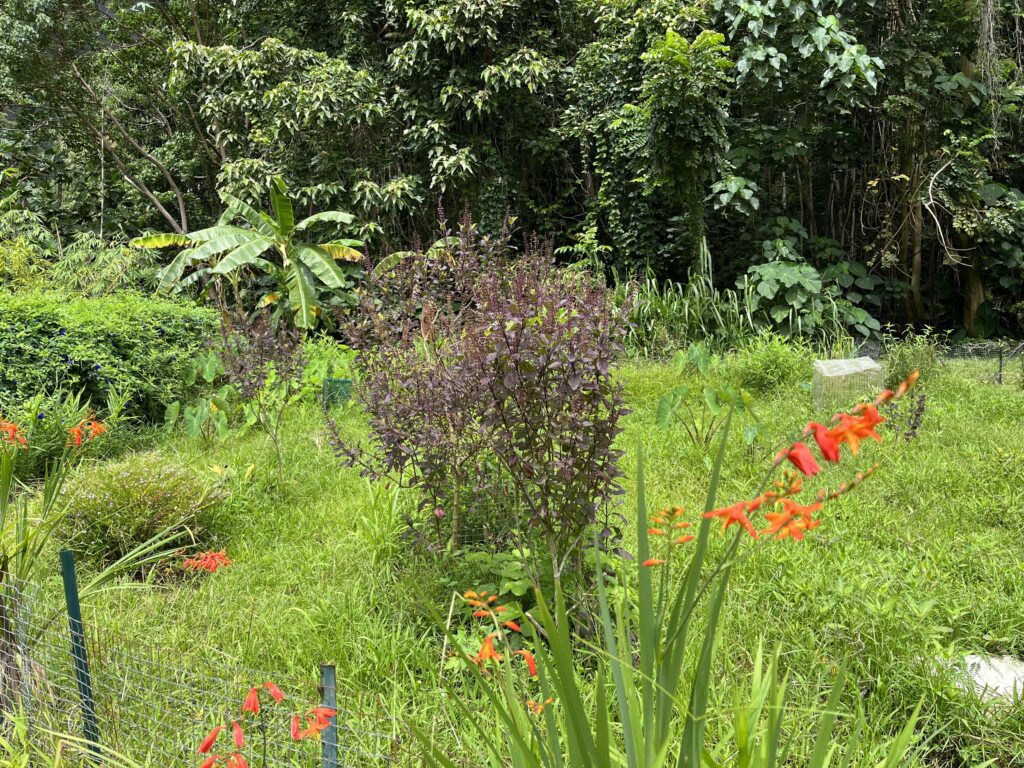
It quickly grew to more than my height (1.5 meters) in no time. However, the many branches spread so vigorously that they began to overshadow the other vegetables, so in early spring this year, the old stems were returned to the soil, and the branches were thinned and pruned to give them a new, cleaner appearance. Although the number of branches has decreased, and the stems have become shorter, the plant still has a dignified and mysterious presence in the garden where it coexists with vegetables and weeds. It is named after the Hindu god Krishna, who is reborn several times.
I pick the leaves of Krishna Tulsi in bulk several times a month. I combine them with the leaves and berries of other herbs, grind them in a mill, infuse them in hot water, mix them with freshly shredded turmeric (autumn turmeric) and ginger, and drink the originally blended herbal tea every night before bed.
I have been drinking this herbal tea with turmeric and ginger for over five years. Compared to before, my throat and nose are more airy, my high blood pressure has returned to normal, my insomnia is gone, and I sleep better. Perhaps due to the synergistic effect of Tulsi, turmeric, and ginger, my joint pain has decreased, and I rarely have a hangover or stomach upset the morning after drinking (!). It has become an indispensable natural supplement in my daily life, so much so that I even carry My Blend Tulsi teabags when I travel.
(Note: The above benefits of My Blend Tulsi Tea are subjective reports based on the author’s actual experience. Also, please note that there have been cases of overdose of herbs, not just Tulsi, causing side effects. So, I recommend you pay close attention and avoid taking them excessively.)
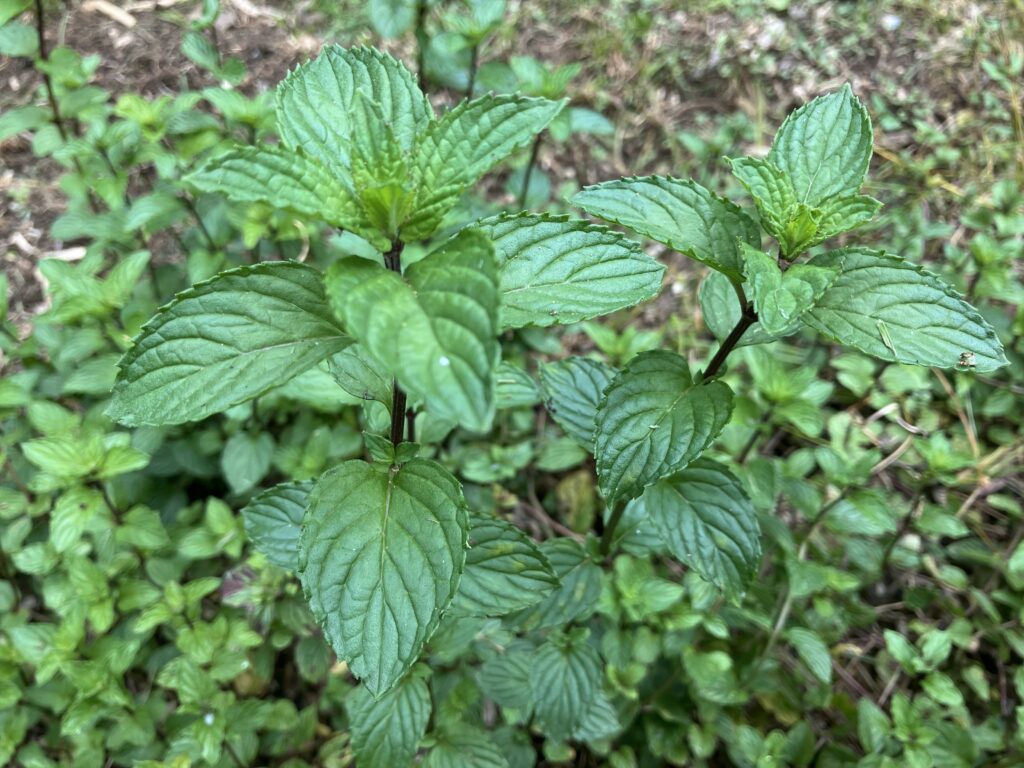
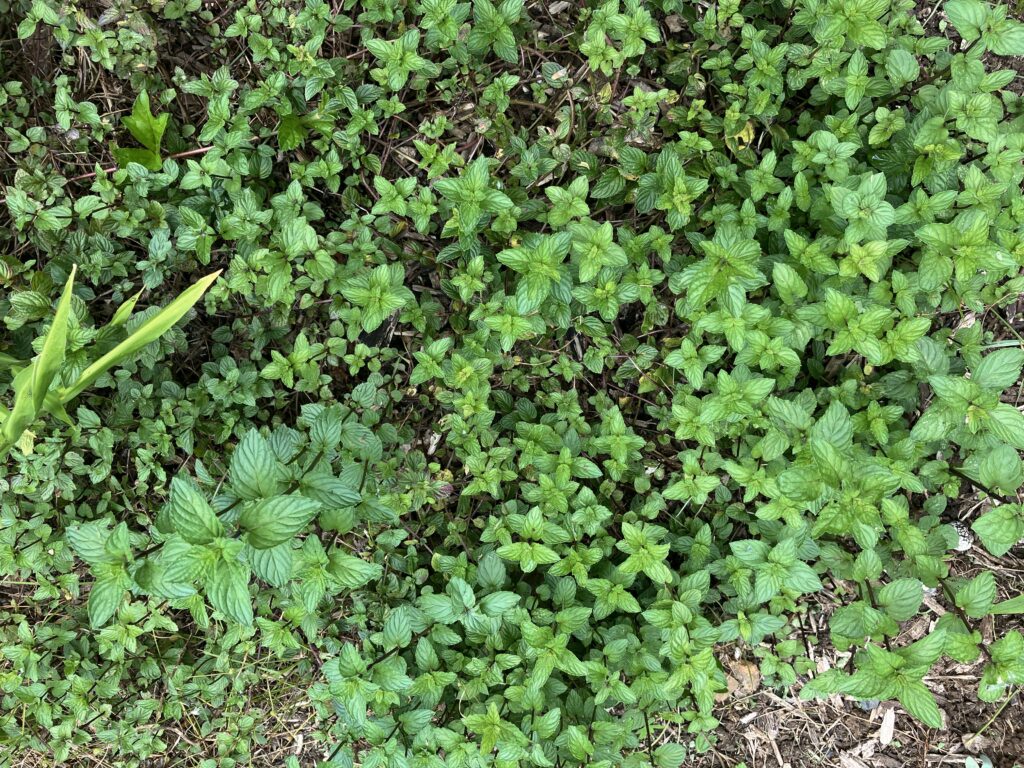
* * * * *
<References >
nurserylive.com (https://nurserylive.com/blogs/plant-talk/did-you-know-there-are-4-
type-of-tulsi-in-india)
MedicalNewsToday
According to MedicalNewsToday, an independent health information website with 150 million users that proudly reported, Tulsi has been shown the following benefits (excerpted below from their site).
Some medicinal properties of holy basil include the following:
- antioxidant properties
- antimicrobial properties
- antidiabetic properties
The herb also:
- reduces skin and wound infections
- counteracts stress
- boosts metabolism
- improves the immune system
- protects the liver
- reduces inflammation
- protects against radiation

